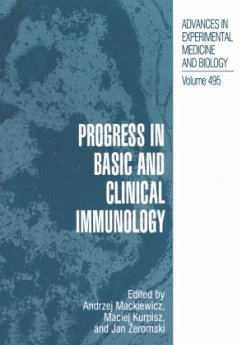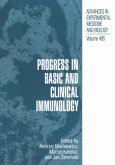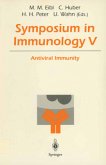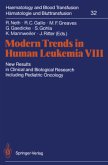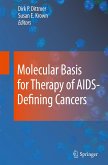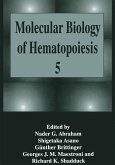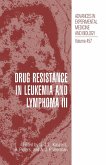Andrzej Mackiewicz / Maciej Kurpisz / Jan Zeromski (eds.)
Progress in Basic and Clinical Immunology
Herausgegeben:Mackiewicz, Andrzej; Kurpisz, Maciej; Zeromski, Jan
77,99 €
inkl. MwSt.
**Unverbindliche Preisempfehlung des Herstellers
Versandkostenfrei*Versandfertig in 1-2 Wochen

39 °P sammeln
Andrzej Mackiewicz / Maciej Kurpisz / Jan Zeromski (eds.)
Progress in Basic and Clinical Immunology
Herausgegeben:Mackiewicz, Andrzej; Kurpisz, Maciej; Zeromski, Jan
- Gebundenes Buch
- Merkliste
- Auf die Merkliste
- Bewerten Bewerten
- Teilen
- Produkt teilen
- Produkterinnerung
- Produkterinnerung
Progress in Basic and Clinical Immunology is a result of the 14th European Immunology Meeting - EFIS 2000, held in Poznan, Poland, on 23-27 September 2000. EFIS 2000 gathered over 1400 immunologists from all over the world. It was an exceptionally memorable meeting for a number of reasons: 1) it was held in the last year of the century and the millennium, thus provoking conclusions of past achievements of immunology and projections for the future; 2) it was held in Poland, a country that is a symbol of struggle for freedom for a large number of scientists originating from the `Eastern Bloc'…mehr
Andere Kunden interessierten sich auch für
![Progress in Basic and Clinical Immunology Progress in Basic and Clinical Immunology]() Progress in Basic and Clinical Immunology77,99 €
Progress in Basic and Clinical Immunology77,99 €![Symposium in Immunology V Symposium in Immunology V]() Symposium in Immunology V77,99 €
Symposium in Immunology V77,99 €![Modern Trends in Human Leukemia VIII Modern Trends in Human Leukemia VIII]() Modern Trends in Human Leukemia VIII78,99 €
Modern Trends in Human Leukemia VIII78,99 €![Advances in Immunity and Cancer Therapy Advances in Immunity and Cancer Therapy]() Advances in Immunity and Cancer TherapyAdvances in Immunity and Cancer Therapy39,99 €
Advances in Immunity and Cancer TherapyAdvances in Immunity and Cancer Therapy39,99 €![Molecular Basis for Therapy of AIDS-Defining Cancers Molecular Basis for Therapy of AIDS-Defining Cancers]() Molecular Basis for Therapy of AIDS-Defining Cancers112,99 €
Molecular Basis for Therapy of AIDS-Defining Cancers112,99 €![Molecular Biology of Hematopoiesis 5 Molecular Biology of Hematopoiesis 5]() Molecular Biology of Hematopoiesis 539,99 €
Molecular Biology of Hematopoiesis 539,99 €![Drug Resistance in Leukemia and Lymphoma III Drug Resistance in Leukemia and Lymphoma III]() G.J.L. Kaspers / R. Pieters / A.J.P. Veerman (Hgg.)Drug Resistance in Leukemia and Lymphoma III154,99 €
G.J.L. Kaspers / R. Pieters / A.J.P. Veerman (Hgg.)Drug Resistance in Leukemia and Lymphoma III154,99 €-
-
-
Progress in Basic and Clinical Immunology is a result of the 14th European Immunology Meeting - EFIS 2000, held in Poznan, Poland, on 23-27 September 2000. EFIS 2000 gathered over 1400 immunologists from all over the world. It was an exceptionally memorable meeting for a number of reasons: 1) it was held in the last year of the century and the millennium, thus provoking conclusions of past achievements of immunology and projections for the future; 2) it was held in Poland, a country that is a symbol of struggle for freedom for a large number of scientists originating from the `Eastern Bloc' countries; and 3) EFIS celebrated its 25th anniversary at this occasion. This comprehensive volume contains 62 chapters grouped into 11 sections: T-cells, Immune Receptors, Antigen Presentation/Dendritic Cells, Cytokines, Immunodeficiencies, Autoimmunity, Allergy/Inflammation, Immunotherapy, Vaccines, Tumor Immunology, and Cancer Immunotherapy.
Hinweis: Dieser Artikel kann nur an eine deutsche Lieferadresse ausgeliefert werden.
Hinweis: Dieser Artikel kann nur an eine deutsche Lieferadresse ausgeliefert werden.
Produktdetails
- Produktdetails
- Advances in Experimental Medicine and Biology 495
- Verlag: Springer / Springer US / Springer, Berlin
- Artikelnr. des Verlages: 978-0-306-46656-4
- 2001
- Seitenzahl: 456
- Erscheinungstermin: 31. Dezember 2001
- Englisch
- Abmessung: 260mm x 183mm x 29mm
- Gewicht: 1102g
- ISBN-13: 9780306466564
- ISBN-10: 0306466562
- Artikelnr.: 21032099
- Herstellerkennzeichnung
- Springer-Verlag GmbH
- Tiergartenstr. 17
- 69121 Heidelberg
- ProductSafety@springernature.com
- Advances in Experimental Medicine and Biology 495
- Verlag: Springer / Springer US / Springer, Berlin
- Artikelnr. des Verlages: 978-0-306-46656-4
- 2001
- Seitenzahl: 456
- Erscheinungstermin: 31. Dezember 2001
- Englisch
- Abmessung: 260mm x 183mm x 29mm
- Gewicht: 1102g
- ISBN-13: 9780306466564
- ISBN-10: 0306466562
- Artikelnr.: 21032099
- Herstellerkennzeichnung
- Springer-Verlag GmbH
- Tiergartenstr. 17
- 69121 Heidelberg
- ProductSafety@springernature.com
T-Cells. CD3-dependent regulation of early TCRbeta gene expression in mainstream alphabeta and NKalphabeta T cell development; N. Baur, K. Eichmann. Molecular characterization of gut T cell precursors in in euthymic and athymic mice; F. Lambolez, B. Rocha. CRTH: marker for the detection of human Th2 and Tc2 cells; L. Cosmi, et al. GILZ, a glucocorticoid hormone induced gene, modulates T lymphocytes activation and death through interaction with NF-kB; C. Riccardi, et al. Tyrosine phosphorylation of PICOT and its translocation to the nucleus in response of human T cells to oxidative stress; Y. Babichev, N. Isakov. Immune Receptors. The molecular specificity of IgG-Fc interactions with Fcgamma receptors; Y. Mimura. Regulation of myeloid cell proliferation and survival by p75/AIRM1 and CD33 surface receptors; M.C. Mingari, et al. X-linked lymphoproliferative disease: the dark side of 2b4 function; C. Bottino, et al. Antigen Presentation / Dendritic Cells. Role of tapasin in MHC class I antigen presentation in vivo; N. Garbi, et al. Regulation of transporters associated with antigen processing (TAPs) by nucleotide binding to, and hydrolysis by, Walker consensus sequences; L. Saveanu, P.M. Van Endert. The AIR-1 encoded class II transactivator (CIITA): the master coordinator of MHC class II gene expression and ..more; R.S. Accolla. Major histocompatibility complex class II (MHC II) expression during development of human fetal brain and haemopoietic organs; T. Wierzba-Bobrowicz, et al. Interactions between dendritic cells; S.C. Knight, et al. Neural regulation of dendritic cell function; G.J.M. Maestroni. A central role for heat shock proteins in host deficiency; P.K. Srivastava. Cytokines. Allele specific regulation of cytokine genes: monoallelic expression of the IL-1A gene; C.L. Verweij, et al. Effect of polysaccharide sulfates on the production of interleukin-8 in an ex vivo model; P.P. Jagodzinski, W.H. Trzeciak. Coordination of interleukin-6 biology by membrane bound and soluble receptors; S. Rose-John. Termination and modulation of IL-6-type cytokine signaling; P.C. Heinrich, et al. Cytokine-induced STAT signalling through the cytoplasmic compartment; P.B. Sehgal. Cytokine-mediated growth inhibition of human melanoma cells; M. Kortylewski, et al. Interleukin-6, tumor necrosis factor &agr; and interferon &ggr; in patients with anorexia nervosa; R. Komorowska-Pietrzykowska, et al. Interleukin-1 system in testis &endash; quantitative analysis; N. Rozwadowska, et al. Immunodeficiences. Mapping genes underlying complex disorders: progress on IgA deficiency and common variable immunodeficiency; I. Vorechovsky, et al. Ataxia-Telangiectasia; S.G. Becker-Catania, R.A. Gatti. Gene therapy of severe combined immunodeficiencies; A. Fischer, et al. Immune reconstitution after highly active anti-retroviral treatment of HIV infection; B. Autran, et al. Dissimilarity of cinical signs with parameters characterizing immune system; N.K. Gorlina, et al. Autoimmunity. The role of Fc receptors and complement in autoimmunity; U. Baumann, R.E. Schmidt. Effect of Hsp70-peptide complexes generated in vivo on modulation EAE; G. Galazka, et al. Gene transfer of protective cytokines in rheumatoid arthritis; O. Distler, et al. Modification of humoral antisperm response; B. Grygielska, et al. Allergy / Inflammation. Immunologic mechanisms of allergen-specific immu
T-Cells. CD3-dependent regulation of early TCRbeta gene expression in mainstream alphabeta and NKalphabeta T cell development; N. Baur, K. Eichmann. Molecular characterization of gut T cell precursors in in euthymic and athymic mice; F. Lambolez, B. Rocha. CRTH: marker for the detection of human Th2 and Tc2 cells; L. Cosmi, et al. GILZ, a glucocorticoid hormone induced gene, modulates T lymphocytes activation and death through interaction with NF-kB; C. Riccardi, et al. Tyrosine phosphorylation of PICOT and its translocation to the nucleus in response of human T cells to oxidative stress; Y. Babichev, N. Isakov. Immune Receptors. The molecular specificity of IgG-Fc interactions with Fcgamma receptors; Y. Mimura. Regulation of myeloid cell proliferation and survival by p75/AIRM1 and CD33 surface receptors; M.C. Mingari, et al. X-linked lymphoproliferative disease: the dark side of 2b4 function; C. Bottino, et al. Antigen Presentation / Dendritic Cells. Role of tapasin in MHC class I antigen presentation in vivo; N. Garbi, et al. Regulation of transporters associated with antigen processing (TAPs) by nucleotide binding to, and hydrolysis by, Walker consensus sequences; L. Saveanu, P.M. Van Endert. The AIR-1 encoded class II transactivator (CIITA): the master coordinator of MHC class II gene expression and ..more; R.S. Accolla. Major histocompatibility complex class II (MHC II) expression during development of human fetal brain and haemopoietic organs; T. Wierzba-Bobrowicz, et al. Interactions between dendritic cells; S.C. Knight, et al. Neural regulation of dendritic cell function; G.J.M. Maestroni. A central role for heat shock proteins in host deficiency; P.K. Srivastava. Cytokines. Allele specific regulation of cytokine genes: monoallelic expression of the IL-1A gene; C.L. Verweij, et al. Effect of polysaccharide sulfates on the production of interleukin-8 in an ex vivo model; P.P. Jagodzinski, W.H. Trzeciak. Coordination of interleukin-6 biology by membrane bound and soluble receptors; S. Rose-John. Termination and modulation of IL-6-type cytokine signaling; P.C. Heinrich, et al. Cytokine-induced STAT signalling through the cytoplasmic compartment; P.B. Sehgal. Cytokine-mediated growth inhibition of human melanoma cells; M. Kortylewski, et al. Interleukin-6, tumor necrosis factor &agr; and interferon &ggr; in patients with anorexia nervosa; R. Komorowska-Pietrzykowska, et al. Interleukin-1 system in testis &endash; quantitative analysis; N. Rozwadowska, et al. Immunodeficiences. Mapping genes underlying complex disorders: progress on IgA deficiency and common variable immunodeficiency; I. Vorechovsky, et al. Ataxia-Telangiectasia; S.G. Becker-Catania, R.A. Gatti. Gene therapy of severe combined immunodeficiencies; A. Fischer, et al. Immune reconstitution after highly active anti-retroviral treatment of HIV infection; B. Autran, et al. Dissimilarity of cinical signs with parameters characterizing immune system; N.K. Gorlina, et al. Autoimmunity. The role of Fc receptors and complement in autoimmunity; U. Baumann, R.E. Schmidt. Effect of Hsp70-peptide complexes generated in vivo on modulation EAE; G. Galazka, et al. Gene transfer of protective cytokines in rheumatoid arthritis; O. Distler, et al. Modification of humoral antisperm response; B. Grygielska, et al. Allergy / Inflammation. Immunologic mechanisms of allergen-specific immu
